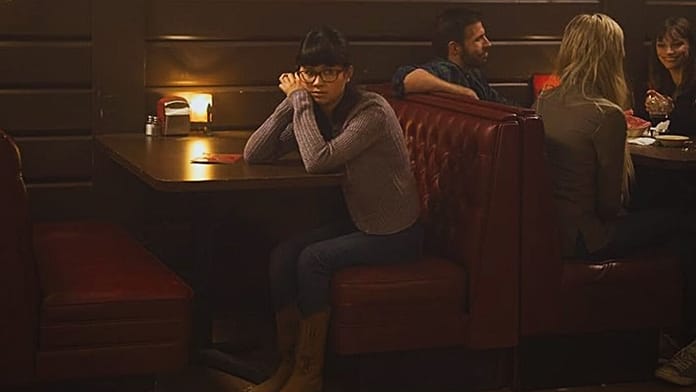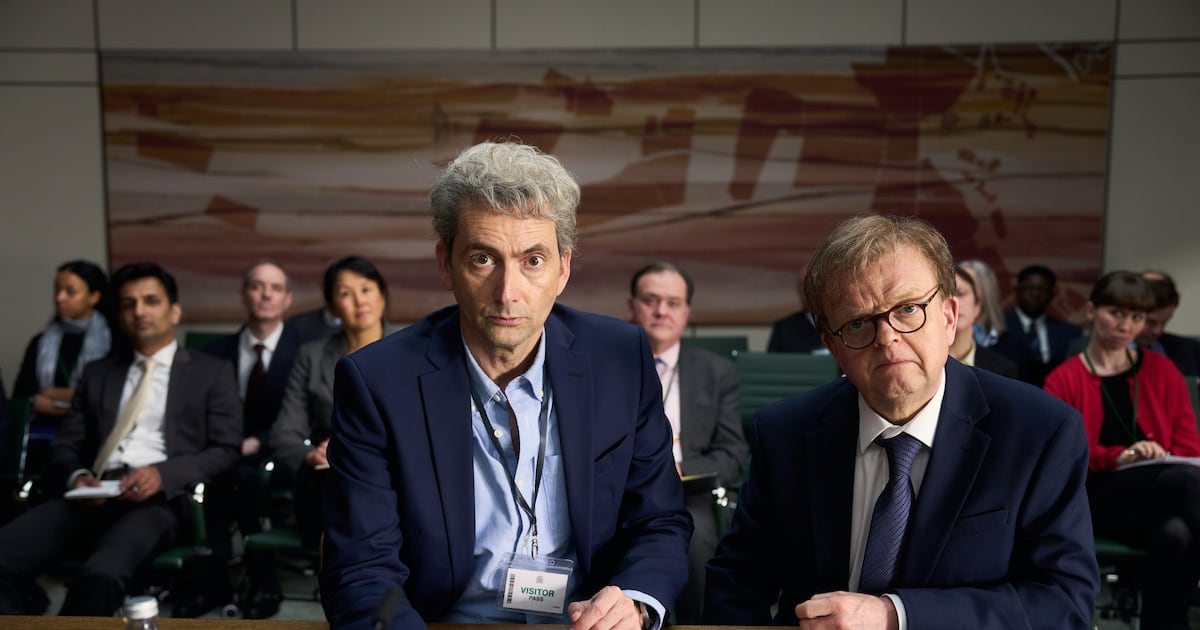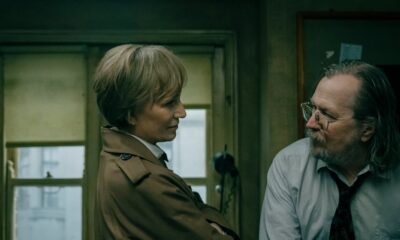
Culture
No neat answers for David Lynch: How my scariest scene in Twin Peaks reminds me to let go

Read more on post.
-x3бv`5CY@Gsܷ~oQo#tgi’̰~@e:OFq;Z&zY;@V�uz 8)NtPҎ8`xi3
8
Q,:{:gǖhB:0qJw鏄”5. [lqZ2o^zRnvueYDW-7O]5m>Ȱ efeي(*zѵPe]Hq~”w-e^/l)u=uVٖTc)#Ve_klJpYO5̲Ǻ(3xd箩oN$g9wHfN-jd;ֽ IQuC[zXn ^
̟b+xxmc=’ C˺#a)iT?*Rv5Eu☁XS ~Db_^1F)$B[$)�8t@bIhX}ЖbvqDžCz:!h,¼;]`)B”Z
E|Ux 9S矜)^O’i4m:]E+v
“Ĕ Wb@_Œ@8B$ow*!_5Xb0;ݠ}vETհyAc{+xفހ/:}`Mn*0{ugvpAtb{of旋@mUU(JQ2}hurX+A)-HN7%’ś=�IJ1oCR̟7 *iWa_tRp![Դ{kg’ſ2*N7A~_(
ϴT)EcZ.zaH0%(ŻQhěM $?oXb]]}D’:긃i9@}w=8,aGи &ONܸy�Ӽ’5K聣^+�:L.ӂ?{*^�e
=g7`�y7#9bz|v97QV’Upq /V=ZF}4` u8’P/”]Xxk0
�Nl�$߶u8@j”x+MFWQjw4
9XbZ1Ox-寣 C,Nl}_*x+kzx_,e ]?]B?*rM#”
>l{yFK%Ի[AޕV CEM’?.s|G8紪8=lؗZYd’QWgvysQEPY#Ց”>{ET*ɭO}EvB
6vzG3ʌ”2H#op ֙wCc& 8v;G[&תitg@IΖbM!Qty s˺*|� YC6
�NM^Di1
ʇ7( Vc]-2ma%CʻSL])
rj5Nc6)
xO
$unёhxKRn@HO5a䱨1J1
vooBH 9gb9i+_W(,x?QS@}ST(D/.&sخrmk
yƘ;{`}5s%iβpƞV?~YvǙ0�Ƀ`Y’N@j�Y`�(m’-?T”Kp$]k$`�BiL_$($�swPvfwFH_b�Z�o#%cmɿveUw~u
ai@
:.XrGqh|0BIyE0КmC,Q?HvT=ܤyPk(
q1B?踈`Ib:.ۋ_(}rhZx/1*@R$!ph.R6JvF0c-Eݥ 3qpC`Xl!�ijkҜ@@
oY
1fq~qI
Culture
Kneecap band member’s London court hearing moved to other side of city after flooding

Read more on post.
A London hearing on Friday in a case involving Kneecap’s Liam Óg Ó hAnnaidh has been moved from Westminster Magistrates Court to another venue 21km (13 miles) away.
The UK’s Ministry of Justice (MoJ) has confirmed to The Irish Times the hearing in the case, in which he is accused of showing support for a terrorist organisation, has been moved to Woolwich Crown Court on the outer fringes of east London.
Westminster Magistrates Court was closed on Thursday after a water main burst and flooded the area.
The MoJ said it did not yet know if the court would reopen on Friday, but added the Kneecap rapper’s case had definitely been moved to the courthouse of Woolwich Crown Court for a 10am hearing.
Earlier on Thursday, London’s Metropolitan Police had banned supporters of Mr Ó hAnnaidh, from congregating at the entrance to Westminster Magistrates Court.
Mr Ó hAnnaidh is due to appear for a ruling on his application to have the case against him thrown out.
He is accused by British authorities of showing support for a proscribed organisation by draping himself in a Hizbullah flag at a gig in London last November.
Judge Paul Goldspring of Westminster Magistrates Court is due to rule whether he has jurisdiction to hear the case – albeit the hearing will now be in Woolwich.
Mr Ó hAnnaidh, who performs as Mo Chara in the Belfast rap trio, has yet to enter a plea in the case but he has publicly indicated that he intends to fight the charge.
At a previous hearing in August, his lawyers argued that the charge against him was issued one day beyond an official deadline. Prosecution lawyers denied this.
The judge has indicated if Mr Ó hAnnaidh’s lawyers are shown to be correct, the case against him will be immediately dismissed on Friday. If the jurisdiction ruling goes against the Irish man, the case will proceed and he will have to enter a plea. If he pleads not guilty, a trial will be set for a later date.
At two previous hearings in the case, hundreds of supporters of Mr Ó hAnnaidh, many waving Irish Tricolours and Palestinian flags, congregated at or near the entrance to Westminster Magistrates Court to hold noisy protests.
On Thursday, police had issued an order restricting supporters of the rapper to a location set back around the corner from the front door of the courthouse.
In a statement on the social media platform X, Kneecap accused the police of making a “calculated political decision”.
“This police action is designed to try and portray support for Kneecap as somehow troublesome,” said the band. Police said the order was necessary to prevent “serious disorder, damage, disruption, impact or intimidation”.
It is unclear what restrictions the police may put in place for the Woolwich hearing.
Culture
The Hack review: Great story of the British tabloid phone-hacking scandal is let down by wackiness

Read more on post.
There are certain fields in which the UK remains a world leader, and among them is public service drama. That is, scripted television that aspires to something beyond mere entertainment and which, when done properly, turns television into a singular instrument for social commentary.
That point was proved with Mr Bates vs the Post Office, about the scandalous treatment of sub-postmasters in the UK and, all over again, with Adolescence on Netflix. Adolescence was far from perfect – its portrayal of the average 13-year-old boy so wide of the mark you had to wonder if anyone involved had ever met an actual teenager. Still, it was insightful about the damage done to young men by toxic manosphere influencers and started a conversation about the dangerous garbage to which children are too often given access.
Now, Adolescence co-writer Jack Thorne has turned his attention to the cesspit that was the British tabloid industry by retelling the News of the World (NoW) phone-hacking scandal with The Hack (UTV, Wednesday). It stars David Tennant, who plays world-weary Guardian investigative journalist Nick Davies, the reporter who put together the story of the NoW hacking scandal over many painstaking years.
Tennant was among the dozens of celebrities and ordinary members of the public whose phone messages were illegally accessed by unscrupulous hackers, which perhaps explains the fervour he brings to the performance.
Journalists can be counted on to swoon over a TV series that paints their profession in even a vaguely positive light, and Davies is undoubtedly the hero of the piece. He has the ideal foil in Toby Jones as Guardian editor Alan Rusbridger, while Robert Carlyle pops up in part two as a constable investigating the disappearance of a private detective – a thread that eventually dovetails with Davies’s investigations.
It’s a great story, but, like Adolescence, The Hack has an unhelpful fixation on novelty. In the Netflix show, the decision to film each episode in a single take was show-off-y and distracting. The same can be said of the streak of surrealism that runs through The Hack, which features animated backgrounds, such as a Tube ad that comes to life, and moving posters (including one that assumes the likeness of NoW proprietor Rupert Murdoch). You can see the ambition – to capture Davies’ paranoia and frustration. But it brings an edge of wackiness to a tale more than capable of standing on its own feet.
Culture
John Boyne wins novel of the year in France

Read more on post.
In The Irish Times this weekend, John Banville tells me about his latest novel, Venetian Vespers. Ned Guinness writes about his new book, Guinness: A Family Succession: The True Story of the Struggle to Create the World’s Largest Brewery. Frank McNally recalls his decision-making days in the Department of Social Welfare in an extract from his book, Not Making Hay – The Life and Deadlines of a ‘Diary’ Farmer. Marian Keyes talks to Róisín Ingle on the set of The Walsh Sisters, the adaptation of her novel series which begins on RTÉ One on Sunday. And there is a Q&A with Tom Cox about his new novel, Everything Will Swallow You.
Reviews are Sinéad O’Shea on She Died Young: A Life in Fragments by Brenda Fricker; Michael Cronin on House of Day, House of Night by Olga Tokarczuk, tr. Antonia Lloyd-Jones; John Walshe on The Traitors Circle: The Rebels Against Hitler and the Spy who Betrayed Them by Jonathan Freedland; Claire Hennessy on the best new YA fiction; Ruby Eastwood on The Loneliness of Sonia and Sunny by Kiran Desai; Eamon Sweeney on 168 Songs of Hatred and Failure by Keith Cameron & A Sound So Very Loud: The Inside Story of Every Song Oasis Recorded by Ted Kessler and Hamish McBain; Andrew Deacon on Not Making Hay by Frank McNally; Helen Cullen on All the Way to the River: Love, Loss and Liberation by Elizabeth Gilbert; Gemma Tipton on How to Art by Kate Bryan & David Shrigley; Muiris Houston on Dr Bot by Charlotte Blease; and Kevin Power on Venetian Vespers by John Banville.
This weekend’s Irish Times Eason offer is Beautiful Ugly by Alice Feeney, just €5.99, a €6 saving.
The Fnac Novel Prize, one of France’s leading literary prizes, has been awarded this year to John Boyne for The Elements, published by JC Lattès and translated by Sophie Aslanides. He succeeds Marie Vingtras, who won in 2024 for Les âmes féroces.
Since 2002, the Fnac Novel Prize has been awarded by a unique jury made up of 400 Fnac booksellers and 400 members. This year, Boyne became the first Irish author to win, the first foreign author chosen since Tiffany McDaniel’s Betty (2020). “This choice illustrates once more the prize’s mission,” the judges said, “to celebrate the diversity of contemporary literary creation, whether Francophone or translated.
“In The Elements, John Boyne explores, through four interwoven stories, the invisible forces that shape lives and questions our relationship to guilt and innocence, to wounds and resilience. With limpid and spellbinding prose, Boyne probes the elements – water, earth, fire, and air – and human beings to reveal their contradictions and fragilities.”
Boyne was born in Ireland in 1971. He is best known for The Boy in the Striped Pyjamas (Gallimard Jeunesse, 2006), which has sold more than six million copies worldwide. His adult novel A Ladder to the Sky established him on the French literary scene.

Poetry Ireland is delighted to present an evening with one of our generation’s most-loved poets, former US poet laureate, Billy Collins. The event will take place in Findlater’s Church (The Abbey), Parnell Square, Dublin, on October 21st at 7pm. Tickets are available to purchase via the Poetry Ireland website. Billy will read work from across his career, including his upcoming collection Dog Show.
*
The Linen Hall has announced the launch of the Michael McLaverty Short Story Award 2025. McLaverty (1904–1992) was one of the foremost proponents of the Irish short story. His archive was lodged with the library by his executors in 2005. The purpose of the award is to foster and encourage the tradition of the short story. Below are the guidelines for entry.
First prize is £2,000, with £250 each for two runners-up. They will be published in a limited anthology. The judges are author Neil Hegarty (The Jewel; Inch Levels; The Story of Ireland) and editor Emma Warnock of No Alibis Press. The entry fee is £10 and the deadline is October 31st. Details here.
Hegarty said: “It’s a great pleasure to judge this edition of the Michael McLaverty Short Story Award, and in so doing to honour a writer whose work I have always admired. This Award matters: and I’m very much looking forward to reading your entries.”
Linen Hall librarian Samantha McCombe said: “We are privileged to hold the archive of Michael McLaverty at the Linen Hall and are delighted to celebrate his fine prose by continuing to honour Michael McLaverty’s commitment to foster and encourage creativity in the short story form.”
The inaugural competition in 2006 was won by Patrick O’Hanlon. Subsequent winners have gone on to publish further works, including: Aiden O’Reilly (2008 winner): Greetings, Hero; Michèle Forbes (2010): Ghost Moth, Edith & Oliver; Mandy Taggart (2012): The Man of the House; Annemarie Neary (2014): A Parachute in the Lime Tree, Siren, The Orphans; Kevin Doyle (2016): To Keep a Bird Singing, A River of Bodies; Eamon McGuinness (2018): The Wrong Heroes; Niall Bourke (2020): The Erection Specialist.
*
The T.S. Eliot Lecture returns to the Abbey stage on December 14th. Produced by the T.S. Eliot Estate in association with the Abbey Theatre, this lecture returns as the 10th in a series that has been inspired by Eliot’s impact on modern literature. This year’s lecture will be delivered by Colm Tóibín. The evening will be introduced by the Abbey Theatre’s artistic director Caitríona McLaughlin, interspersed with readings by Cathy Belton, and followed by a conversation with James Shapiro, and marks 85 years since Eliot spoke at the Abbey Theatre to commemorate and celebrate W.B. Yeats on the first anniversary of his death.
*
The Killing of the Reavey Brothers: British murder and cover-up in Northern Ireland (Mercier Press), will be launched in Hodges Figgis, Dawson St, Dublin 2 on Thursday, October 9th at 6pm by former RTÉ broadcaster, Joe Duffy.
*
A Celebration of Derek Mahon, devised by Peter Fallon of The Gallery Press in association with University of Notre Dame, is to be held on November 4th, at 7.30pm, in the Royal Irish Academy of Music, Westland Row, Dublin 2. Special guest readers include John Banville, Claire Keegan, Paul Muldoon, Eiléan Ní Chuilleanáin and Stephen Rea, with rare video recordings of Mahon. Tickets: €25
*
Veteran broadcaster and Irish language enthusiast John Creedon will be interviewed by fellow broadcaster and media consultant Seán Perry on Sunday, November 9th at 2.30pm in the Abbey Arts Centre, Ballyshannon.
Author of best-sellers including An Irish Folklore Treasury and That Place We Call Home, Creedon hosts a popular weeknight show of music and stories on RTÉ Radio 1. His childhood memoir This Boy’s Heart was shortlisted for the 2024 An Post Awards, and the author will be awarded an Honorary Doctor of Arts from University College Cork in November.
-
Culture2 days ago
Taylor Swift’s new cinema outing generates more than €12million in just 24 hours
-
Politics3 days ago
European Parliament snubs Orbán with vote to shield Italian MEP from Hungarian arrest
-
Culture2 weeks ago
Life, loss, fame & family – the IFI Documentary Festival in focus
-
Health3 days ago
EU renews support for WHO’s Universal Health Coverage Partnership
-
Culture2 months ago
Fatal, flashy and indecent – the movies of Adrian Lyne revisited
-
Culture3 days ago
Twilight at 20: the many afterlives of Stephenie Meyer’s vampires
-
Environment6 days ago
Key oceans treaty crosses threshold to come into force
-
Culture1 week ago
Farewell, Sundance – how Robert Redford changed cinema forever














































